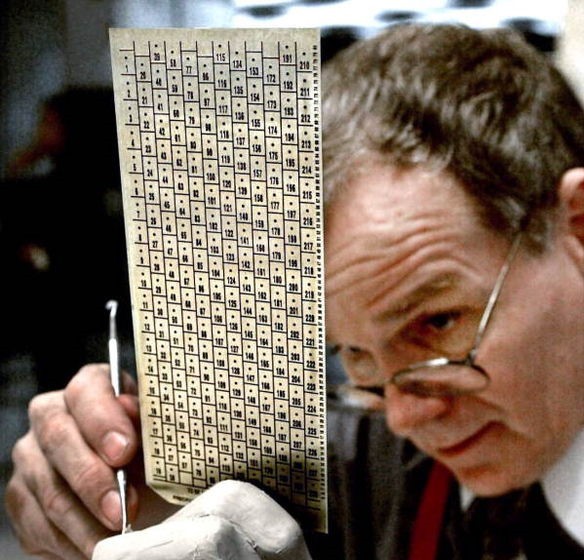Recounts Birth Reforms
Under The Hood
SRQ DAILY
SATURDAY NOV 14, 2020 |
BY JACOB OGLES
Image courtesy Wikimedia
Among those professionals who count votes for a living, there’s always a secret hope for elections to be landslides. Close elections stress our democracy — in every sense of the word. I learned this early in my career, taking a job out of college covering politics for my hometown paper in easy-to-overlook Lake County, Florida in the year 2000.
We didn’t write much about the presidential election there. The high point was supposed to be when Dick Cheney swung through The Villages. But most readers would guess how the race came to dominate life after the vote was in. The next 36 days saw recounts and court fights which turned every county elections office into a battlefront in an internationally watched democratic war. In the end, George W. Bush won the state by 537 votes over Al Gore, securing the necessary electoral votes for president.
As America watches another presidential election, one not nearly as close but still creating work for election attorneys, recounts are once again in the news with cries for scrutiny, courtroom maneuvering and, inevitably, skepticism among those whose candidate came up short. Friday saw networks call the final states, with Joe Biden’s total at 306 electoral votes and Donald Trump’s at 232, but many of his supporters doubt the results. Beyond the desperate hope for an impossible turnaround on which many, including Trump himself, continue to cling, this close election created fresh headaches for elections officials in states won by less a percentage point. Florida managed to avoid running that gantlet. But perhaps this election, like 2000, can yet produce positives for democracy.
Election reform is hard. Those who make decisions about our laws are chosen using systems that may be flawed, but it’s difficult to explain that to those emerging victorious. But after 2000, Florida had no choice. We had flawed voting systems — hanging chads anyone? When votes were challenged, there were subjective rules. And when decisions were made, it proved difficult for everyone not to judge merits based on which candidate benefitted.
Lawmakers in Florida later developed stricter, more uniform rules for how people vote and disputes get settled. No reforms are perfect, but there were suddenly rules when recounts get triggered, by hand and by machine. A roadmap for challenging results was developed.
Two years ago, that system faced its greatest test since 2000 as Florida held three statewide recounts, including for Governor and Senate. Problems still arose. It took too long to count an uncertain number of ballots in large Florida counties, and poor ballot design in Broward may have impacted the Senate race in ways we can only wonder, the same as the butterfly ballot 20 years ago. Issues were litigated in court. But for the most part, results were clean and clear, albeit close.
New problems were exposed this year in other states. The pandemic forced everyone to offer vote-by-mail. Florida has offered no-questions absentee and early voting for more than a decade. Other states made it up on the fly. And while Florida learned long ago to count mail ballots before polls close, many states put the large stack last in the vote pile. But all this can be fixed, by the state or through federal guidelines. Accuracy must never be compromised by speed when counting votes, but rules everyone agrees upon in advance can ensure final counts faster, leaving less time for speculation.
Every crisis provides an opportunity. Leaders must take advantage of this one.
Oh and by the way, thanks to Florida being able to provide detailed results in a timely fashion, SRQ can provide its analysis more quickly as well. Our Where The Votes Are ZOOM analysis of the general election will be held this coming Thursday, November 19, 2020 at 8:30am. Mark your calendars—your choice whether you use a pencil or a Sharpie.
Click here to register for the November 19th Where the Votes Are virtual presentation.
Jacob Ogles is contributing senior editor for SRQ MEDIA.
Image courtesy Wikimedia
« View The Saturday Nov 14, 2020 SRQ Daily Edition
« Back To SRQ Daily Archive









